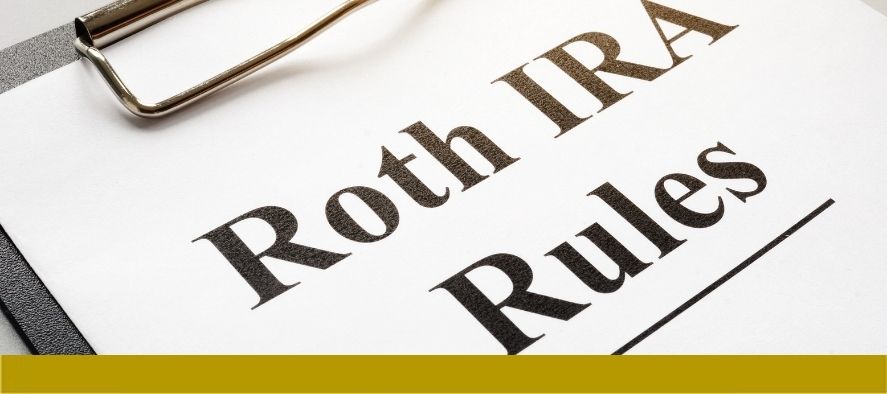Last Updated on February 15, 2024 by Ben
The Silver IRA Rules are the latest trends in retirement investing. This is a guide to help you navigate this strategy and make sure that it is suitable for your needs. You’ll find out how to get started, what types of investments are available, and more!
Related Post:
Master the art of silver IRA investing with the Best Silver IRA Companies Guide
Secure your retirement with the stability of a Silver IRA rollover
Silver IRA Rules You Should Know!
This article won’t go into all the details that you might need, but it’s a good place to start. Whenever you’re ready to get started on this exciting journey, then this is the guide for you.
The Silver IRA Operates Just Like a Traditional IRA
It is a tax-deferred retirement account where all the money you put in the account now can be accessed tax-free when withdrawn after age 59 and a half. It works just like a normal IRA except that it follows different rules, mainly the ability to purchase specific types of silver and other precious metals.
Silver Must be Held by a Custodian in an Approved Site
Gold does not need to be held by a third party, which is one of the reasons it is popular with self-directed IRAs. You or your IRA custodian can do the rollover process (taking money from a traditional IRA and putting it into a silver IRA). Still, it must be done correctly to avoid being penalized in any way.
The Silver Must Meet Purity Standards
This is harder to do with silver than other metals such as gold. Because of this, you will find when looking at different choices that some companies offer much less for the same weight than others. Another thing to be informed of is that the value will change daily, just like any other investment. This can be both good and bad.
You Can’t Add Already-owned Silver to Your IRA
You have to buy actual silver from a company and have it shipped to your custodian. This choice also comes with the added benefit of eliminating the sales tax, which can be as much as 10% in some places.
However, the best way to own silver is to buy and hold physical bars (which are very hard for anyone but the owner to dispose of).
IRS Contribution Limits Apply
Your ability to put money into a traditional IRA is based on your income and whether a workplace retirement plan covers you. If you are not covered, regardless of your income, you can contribute up to $5,000 per year ($6,000 if you’re 50 or older). You can also contribute if a plan covers you, but your income is under a certain level (this level is in flux right now as it is tied to premium health care costs).
Only Specific Silver Bullion Qualifies for Use in a Silver IRA
Most coins made from silver (such as the American Silver Eagle) do not qualify, as they carry a denomination, which means their value is based on their weight in silver and not their face value. The actual list of approved assets changes from time to time.
IRS Publication 590-B provides details on the specific procedures for opening a self-directed IRA. This type of account also has a required minimum custodian fee, which is your annual cost for maintaining the account.
The Dos and Don’ts of Silver IRA Investing
Do check with your accountant, financial planner, or tax advisor to make sure a silver IRA is right for you.
While the process of opening a silver IRA is quite simple and efficiently within the grasp of virtually anyone who can read this, many aspects of the plan remain unfamiliar to many consumers. Having an expert answer any remaining questions you may have about this often overlooked retirement savings strategy is vital to ensuring your maximum investment potential.
Dos:
- Do choose an established, transparent, and trusted silver IRA company with a solid reputation.
- Make sure your chosen silver IRA custodian is approved and on the list of federally-approved trustees for IRS silver IRA rollovers.
- A trustworthy and licensed company should hold the silver bullion you want to buy.
- Do ask yourself if you are paying too much. If you are paying more than $4 over the spot for a one-ounce silver coin, then you’re paying too much.
Don’ts:
- Don’t confuse a silver ETF with real physical silver.
- Don’t buy junk silver just because it has a low premium or high face value.
- Buy the silver that’s right for you and your needs. As long as it is a trusted company, then the price shouldn’t matter.
Silver IRA Investment Restrictions
There are a few restrictions on silver investments. It is illegal for a self-directed IRA to purchase foreign currency, banknotes, or other speculative assets, regardless of whether these fall into the traditional definition of securities or not. Silver bullion dealers were trying to circumvent this restriction by issuing what they called ” warehouse receipts.”
These receipts acted basically like shares of stock in that the IRA holder owned an indeterminate amount of the company’s assets, usually silver.
What Works, What Doesn’t
Life Insurance Policies
Yes, this form of investment is not some security or bond or currency, but rather a contract–one that says you’re going to give someone money upon your death. Many people think life insurance is a morbid topic, but let’s take a moment to think this through. You can get the peace of mind of knowing that your loved ones will still be able-bodied and financially secure if something happens to you.
Collectibles
When you think of collecting, sports cards and comics may come to mind. While the pursuit is still ongoing for some, the appreciation of these items takes a backseat to their entertainment value. Much like stocks, a collectible is only worth what someone is willing to pay for it, and these types of items tend to be more of an investment in time than anything else.
Foreign Investments
With the popularity of globalization, foreign investment opportunities are more accessible to those with a bit of extra coin. While venturing outside of the US is an option, there are still risks, regulations, and laws to be aware of. There are tax burdens and limitations on how much can be contributed to a foreign company.
Before starting a foreign investment plan, it’s always best to consult a tax advisor or financial planner familiar with these matters. All situations are different, and planning may be needed beyond what can be found online.
Real Estate
It is generally a safe investment for most people, but it is commonly accepted that it is nearly impossible to get rich with real estate. There is a reason there are so many foreclosure signs in people’s front yards; some people end up taking out loans they cannot afford or end up selling their property at a loss. If you decide to go down the route of buying residential or even commercial property, research your realtor, property, and mortgage brokers very carefully.
Silver IRA Withdrawal Rules
The IRS also states that IRA owners cannot use their funds to purchase collectibles, such as paintings, antiques, and other items considered to have sufficient collectible value. Owners who do so will trigger a tax penalty that can be as high as 45 percent of the amount withdrawn.
However, other than these stipulations, people with traditional, SIMPLE, or even SEP IRAs have pretty broad latitude when using their accounts. People are not required to invest in gold, real estate, or any other fixed asset. They can use their funds for just about any purpose they desire as long as they do not deal in collectibles or violate the previously mentioned self-dealing rule.
Related Articles:
- Silver Individual Retirement Account Custodian
- Silver Ira Company
- Investing in Silver Ira
- Silver Density
- Custodians for Silver Ira
- Options For Silver Storage
Recommended Services:
- American Hartford Gold Tax Advantages
- Noble Gold Tax Advantages
- Augusta Precious Metals Tax Advantages
- Goldco Tax Advantages
Whether you are interested in purchasing precious metals for your retirement or prefer a more traditional approach, it’s essential to understand all the rules governing your IRA.
Silver IRA Rules Against Self-Dealing
IRAs are set up to provide people with an added measure of flexibility regarding retirement savings. People with regular IRAs often use them for purposes that are not necessarily traditional. However, IRAs are set up to prevent people from using their retirement funds in a way that would be considered self-dealing. This is known as “self-dealing,” and it is highly illegal for IRA assets.
Self-dealing rules are in place to ensure that IRA owners do not use their retirement funds to make personal investments, as this would defeat the purpose of a tax-sheltered retirement account.
A recent notice from the IRS indicated that an increasing number of IRA owners transferred funds from their traditional IRAs into self-directed IRAs and then used these new accounts to purchase precious metals, such as gold and silver. While the IRS does not explicitly prohibit this type of activity, there are rules in place to make sure that all contributors are treated equally.
In this case, people who engage in this practice regularly are typically known as “dealers.” For this type of arrangement to remain compliant with IRA rules, these dealers need to provide equal terms to all their customers. This means that any person who purchases precious metals from one of these dealers cannot enjoy better terms or conditions than a person who does not buy metals through this particular dealer.
Conclusion
Silver IRA rules are designed to limit how people use their retirement savings. People can use their IRA for nearly any purpose, provided they do not deal in collectibles or place their funds in a self-dealing transaction.
Most people are limited to more traditional investment vehicles, such as real estate and bonds. Rules for purchasing precious metals such as gold or silver through an IRA are much more flexible.
Owners can even choose to buy mining equipment, refinery equipment, or even a mine itself. As long as a single company does not own more than a 50% stake in the mine, any other person or company can own whatever percentage of the mine they desire. You can even purchase bullion and keep it in a depository.


